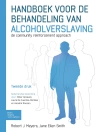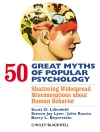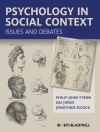Depression has colonized the world. Today, more than 300 million of us have been diagnosed as depressed. But 150 years ago, ‘depression’ referred to a mood, not a sickness.
Does that mean people weren’t sick before, only sad? Of course not. Mental illness is a complex thing, part biological, part social, its definition dependent on time and place. But in the mid-twentieth century, even as European empires were crumbling, new Western clinical models and treatments for mental health spread across the world. In so doing, ‘depression’ began to displace older ideas like ‘melancholia, ‘ the Japanese ‘utsusho, ‘ or the Punjabi ‘sinking heart’ syndrome.
Award-winning historian Jonathan Sadowsky tells this global story, chronicling the path-breaking work of psychiatrists and pharmacists, and the intimate sufferings of patients. Revealing the continuity of human distress across time and place, he shows us how different cultures have experienced intense mental anguish, and how they have tried to alleviate it.
He reaches an unflinching conclusion: the devastating effects of depression are real. A number of treatments do reduce suffering, but a permanent cure remains elusive. Throughout the history of depression, there have been overzealous promoters of particular approaches, but history shows us that there is no single way to get better that works for everyone. Like successful psychotherapy, history can liberate us from the negative patterns of the past.
Содержание
Preface 10
Acknowledgments 19
1 Depression is a Thing 23
2 Too Dry and too Cold 52
3 Turned Inward 79
4 A Diagnosis in Ascent 108
5 ‘Just Chemical’ 152
6 Darkness Legible 187
Epilogue: Depression’s Past and Future 216
Note on the Historiography 221
Partial Bibliography 226
Index 232
Об авторе
Jonathan Sadowsky’s writing investigates madness and its compelling relationship with culture and society. A renowned historian of medicine, he is the author of Imperial Bedlam: Institutions of Madness and Colonialism in Southwest Nigeria, as well as Electroconvulsive Therapy in America: The Anatomy of a Political Controversy. He is the Theodore J. Castele Professor of the History of Medicine at Case Western Reserve University, where he is also Associate Director of the program in Medicine, Society, and Culture in the Department of Bioethics. In addition to holding degrees in African and European history, he has studied psychiatric epidemiology.












